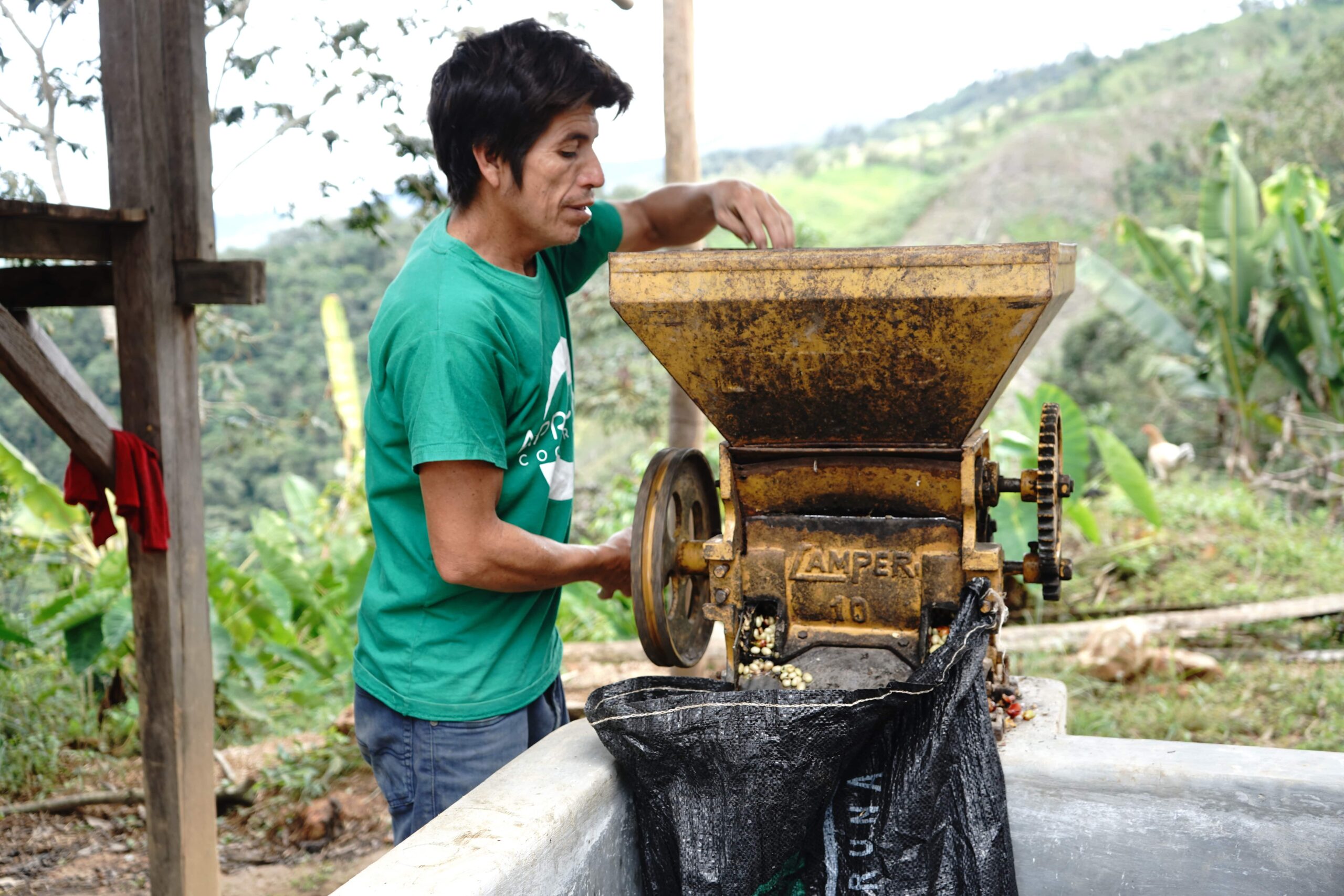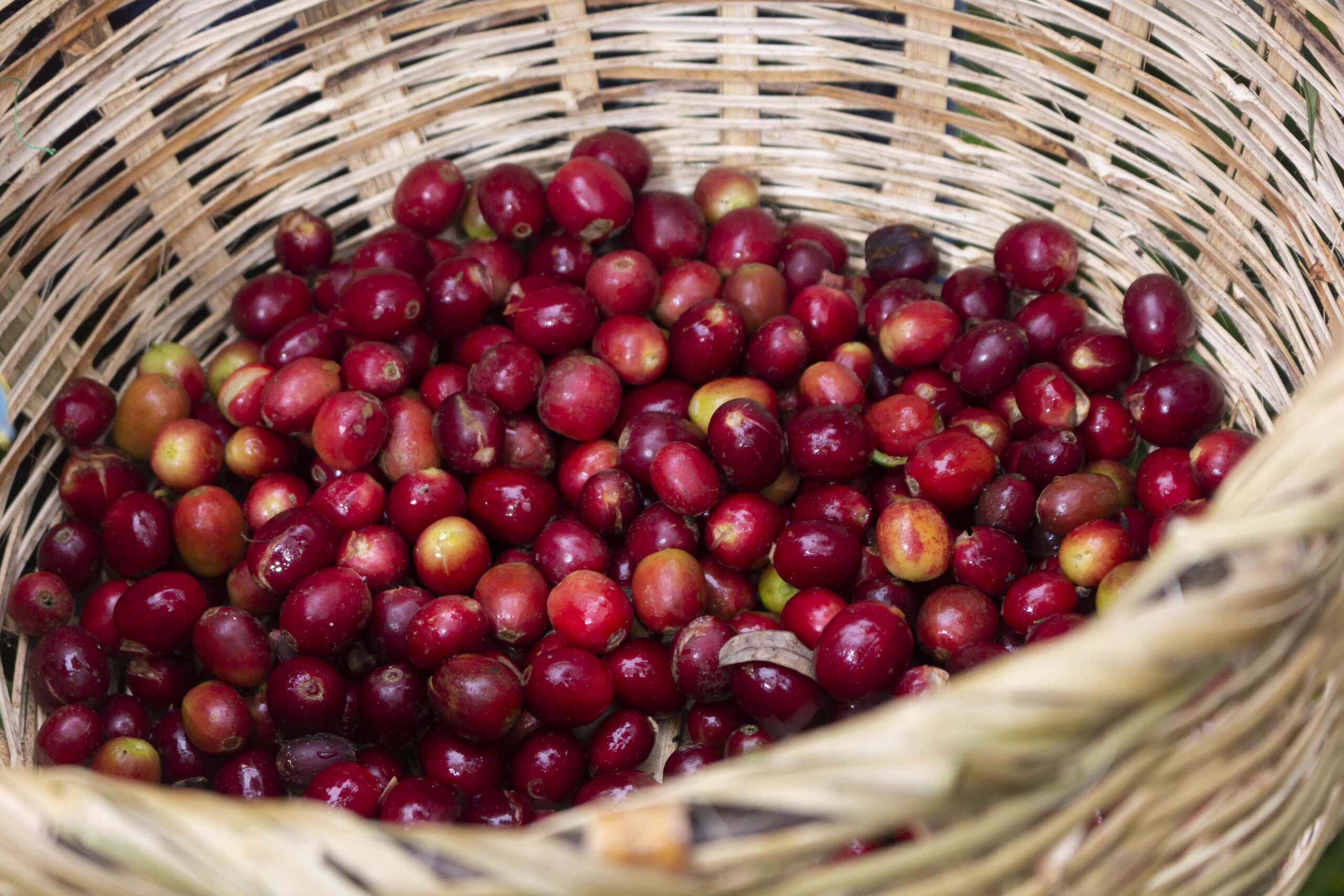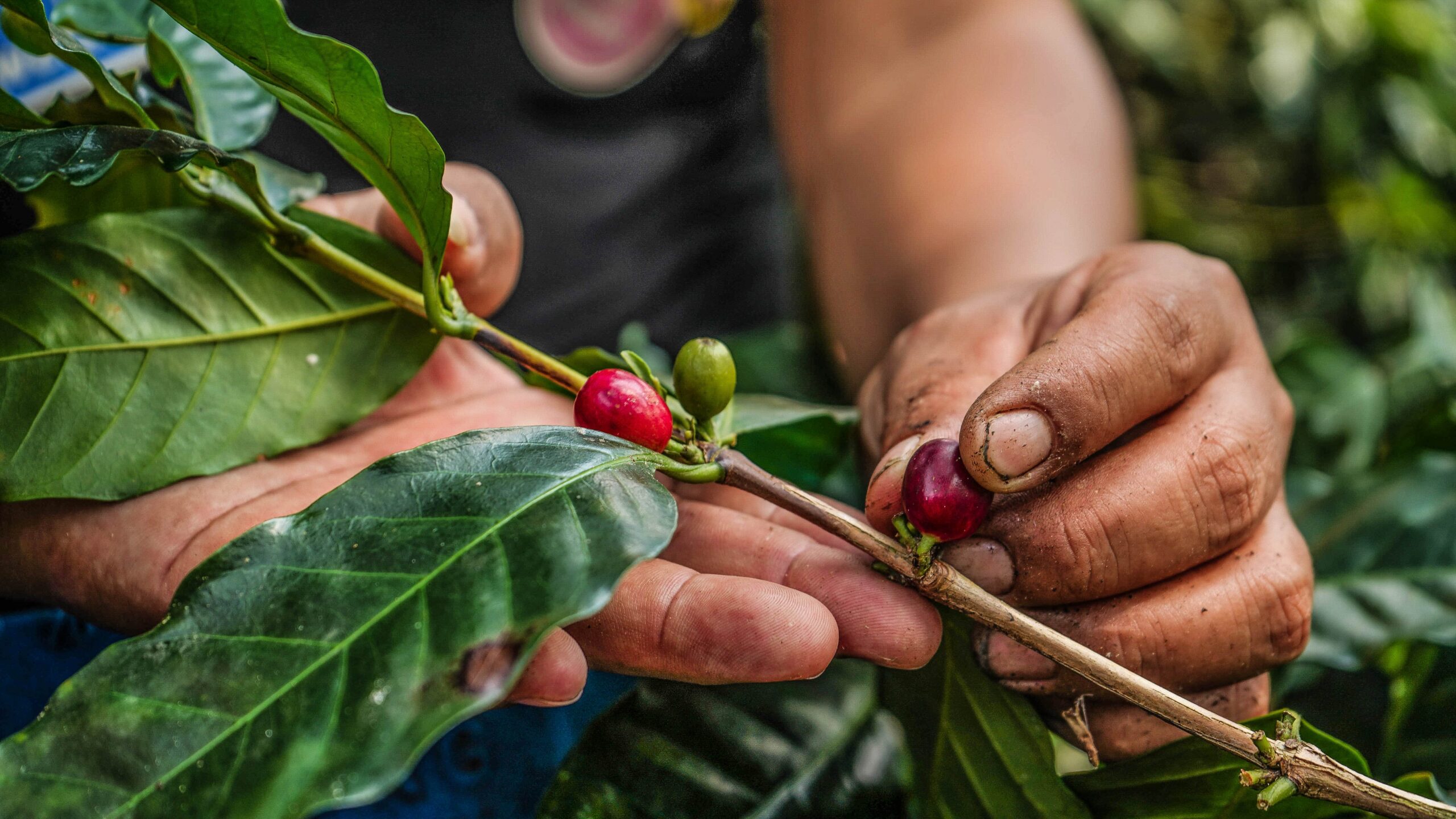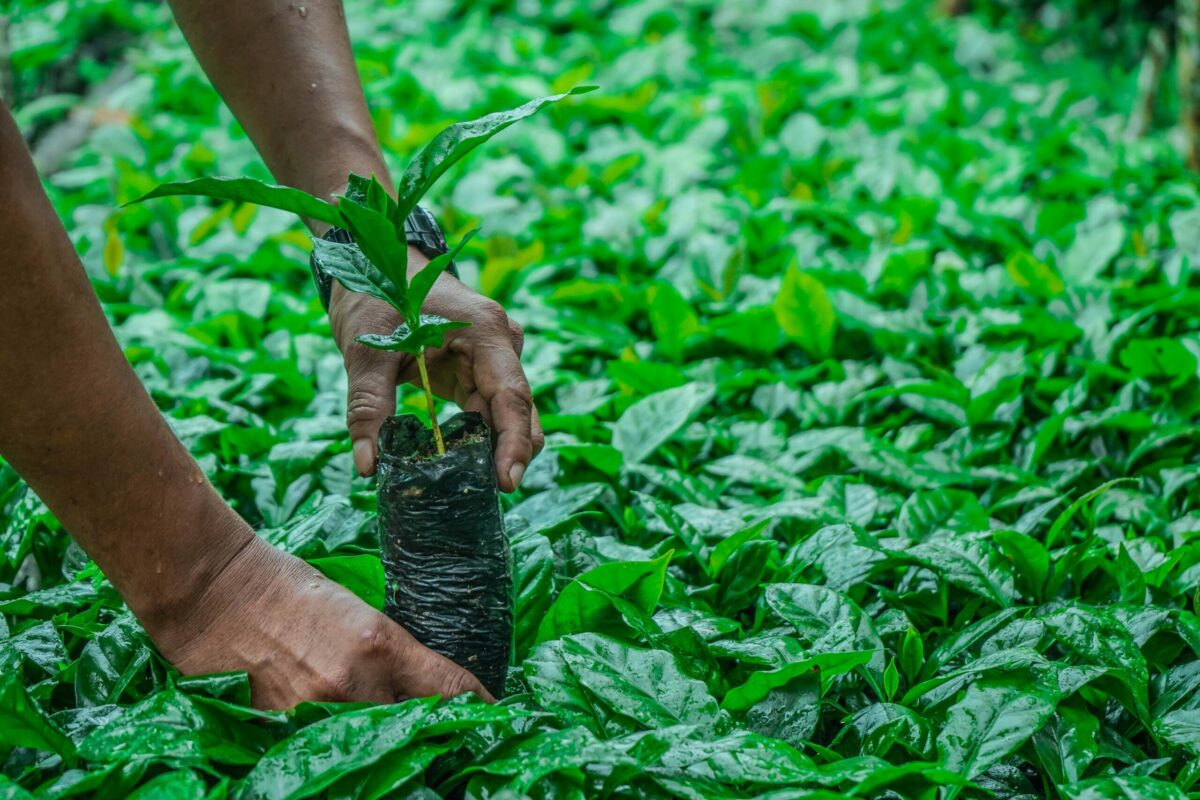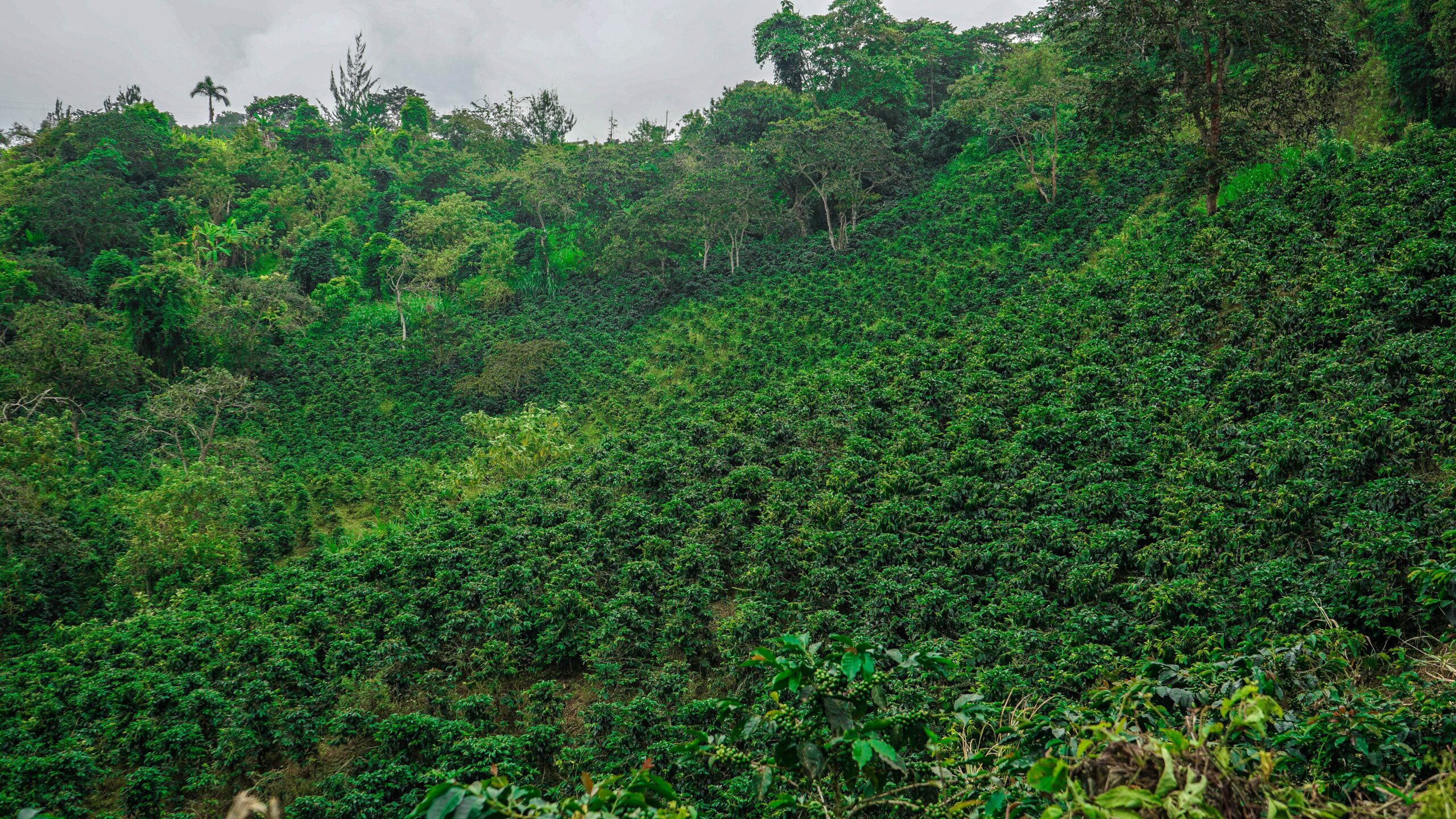Peru Aprocassi is a coffee cooperative in Cajamarca, the northern highlands of Peru. This remote region is home to many indigenous Inca who rely on sustenance farming and coffee production. Much like the rest of the country, coffee here is grown by smallholders with less than 2 or 3 hectares each.
The region consists entirely of the Andean range. High altitudes, lush jungle and fertile soil create idyllic coffee conditions. Equally important, the rugged terrain means communities are remote and access is limited. Coffee is often carried long distances and sold to intermediaries, running the risk of being blended with indiscriminate qualities. However, recent strides have been made as producers organize with the support of the Agricultural Ministry. The result is increased access to markets, as well as education around farming practices, processing and improved coffee quality.
Peru Aprocassi is grown at 1,000-1,600 meters above sea level, in this idyllic microclimate. Cherry is sorted through flotation and machine pulped. After 18 to 24 hours of anaerobic fermentation, the coffee is washed in ceramic containers and sorted again through sieves. Finally, the coffee is patio and solar dried for 5 to 15 days, depending upon weather conditions.
About the Cooperative
Cooperativa de Servicios Multiples Aprocassi is a collection of 32 producers in the Cajamarca region, specifically the provinces of Jaen and San Ignacio. The cooperative is focused on continuous self improvement. It prioritizes gender equity, engaging younger generations and training community leaders to make better business decisions that advance the group.
The Aprocassi cooperative also works to mitigate climate change and conserve local biological ecosystems. One such effort is its reforestation project, in which seedlings are being planted in producer partners’ farms in San Ignacio and Jaen. Restoring these forested areas has the added benefit of microclimate generation — the vegetation captures carbon and regulates water cycles, and falling leaves restore nutrients to the soil. All these efforts increase coffee yields and quality and make coffee farming more sustainable and profitable for members.
Cupping notes: Milk chocolate, nutty; pleasant acidity, smooth body.
